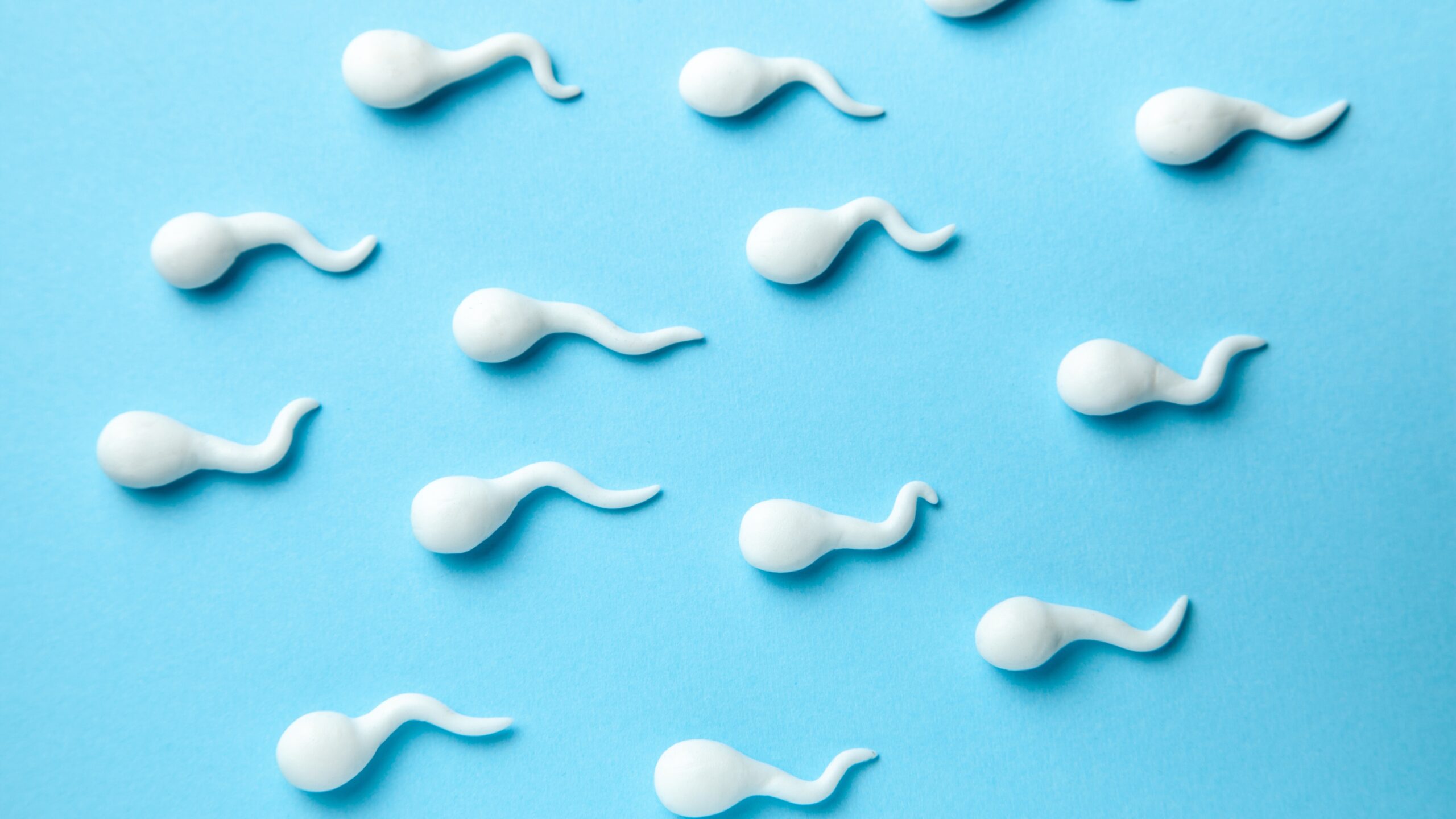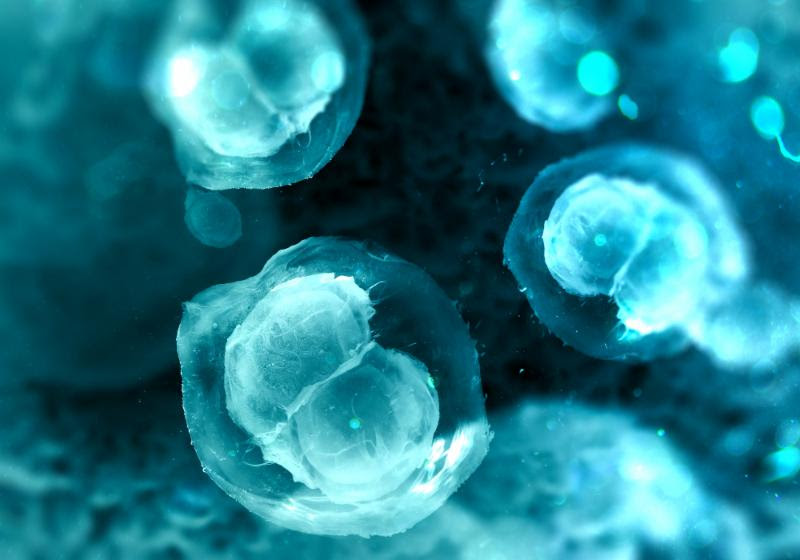
Genetic testing is a crucial part of the donor screening process. Donor genetics can provide a lot of information on what traits and characteristics the intended parents can expect with their child. However, donor egg genetics are not the only factor that contributes to a child’s biological traits. Read on for everything you need to know about egg donor genetics, including how and why The World Egg and Sperm Bank screens potential egg donors and what other factors influence a child’s biological features.
What Is Donor Egg Genetics?
Donor egg genetics is the study of genes and the heredity of donor eggs.
Donor egg genes are the biological characteristics of an egg. Those characteristics are made up of sequences of DNA, and are inherited from the person donating the egg.
Why Do Donor Egg Genetics Matter?
Inherited genes can play a role in a child’s hair and eye color, along with their physical and mental health.
A donor may have a family history of some disorder or disease that is caused by a genetic mutation. Even if they do not show any symptoms of a disease or disorder, they can still pass a mutation down to an egg. The donor could be a carrier of a genetic mutation, and a child that results from a donor egg with a mutation may or may not manifest, or express, that mutated gene in the form of a genetic disease or disorder.
A gene mutation only manifests in a genetic disorder if both the egg and the sperm have the same genetic mutation. To avoid any genetic issues, donors are screened for mutations that may be inherited.
Unfortunately, inherited genetic mutations may disqualify a prospective donor from donating their eggs. This only happens if both a donor and the sperm contributor carry the same inherited gene mutation.
How The Donor Genetic Screening Process Works
Screening for genetic abnormalities is fast and simple. Prospective egg and sperm donors have blood drawn early on in the screening process. This blood is analyzed to check for any inherited genetic mutations.
A person can carry several types of mutations. This is why The World Egg and Sperm Bank screens donors for over 400 different mutations. Carrier genetic mutations are noted and egg donors are matched only with sperm donors that do not also carry the mutation.
This ensures that no new child will end up expressing an inherited mutation in the form of a disease or disorder.
Will The Child Look Like The Egg Donor Because Of Egg Donor Genetics?
On a biological level, a child’s physical traits are a result of inherited genes from egg and sperm donors. The child will have a mix of physical traits from egg and sperm donors, and will not share genes with the intended mother.
However, the child may not necessarily look like the egg donor. This is because egg donors themselves have a combination of inherited physical traits. Some of which are expressed, while others are not.
For example, an egg donor with brown hair may have parents with red hair and brown hair. The egg itself may carry only the red hair trait, so the child may end up having red hair.
Also, if the future father’s sperm is used, the child may end up looking like their father, or the father’s parents or grandparents.
If egg recipients feel strongly about having a resemblance to their child or shared family ancestry, they can prioritize those characteristics while searching for the right egg donor.
The Role of Epigenetics in a Child’s Biological Traits
There are a lot of other factors that affect which genes are “activated” and expressed on a physical, mental, and emotional level. One of the biggest factors is the child’s environment in the womb.
While a child receives two sets of genetic material, the genes that are outwardly expressed, such as a child’s metabolic rate, depend not only on the set of genes the child has but the environment it grows up in, especially while in the uterus. The modifications of gene expression based on the uterine environment during pregnancy is called prenatal epigenetics.
Prenatal epigenetics simply means that what happens during pregnancy, such as exposure to stress or environmental toxins, may affect the child’s biological traits in the short or long term.
For example, if a mother-to-be experiences malnutrition during pregnancy, the child’s metabolic rate may be slower. This is because while in the womb, the child’s body experienced a state of hunger and adapted by slowing down its metabolism, “holding in” food for longer because it was afraid it wouldn’t have a constant supply of food.
So, while some mothers do rely on donors to provide genetic material, they can absolutely influence their child’s biological traits.
To give a new child the best chance of health during their life, mothers-to-be can:
- Avoid alcohol and drugs, as these substances can cause short-term and long-term health problems
- Commit to a well-balanced diet that provides adequate nutrition to both mother and child
- Minimize stress, as stress can activate traits related to mental illness later on in life
Will Donor Egg Genetics Affect The Future Mother’s Bond With Their Child?
Even if an future parent doesn’t share genes with the child, they can still bond. In fact, a child’s environment throughout pregnancy and after birth may have an even stronger bonding effect than shared biological material.
There are many ways to bond with your new child, such as:
- Looking into your child’s eyes when breastfeeding or bottle-feeding
- Cuddling with your child, providing skin-to-skin contact
- Napping with your child
- Talking and reading aloud to your child
- Responding to your child’s cries, especially during the first three months of their life
- Spending quality time with your child, sometimes going on adventures and, at other times, staying in to play
- Putting down your phone and giving your child your full attention
As your child grows and spends more time with your family, its likely they will adopt the mannerisms, humor, habits, and interests of those they spend the most time around. In this way, your child will be bonded to (and resemble) you and the rest of your family members.
Final Word On Egg Donor Genetics For Future Parents And Donors
To ensure future parents have the healthiest child possible, it’s recommended that egg and sperm banks thoroughly test egg and sperm donor genetics. This way, families can actively avoid passing on any genetic disorders and know important medical history about their new child.
It’s important to remember that genetic features are not the only factor when it comes to searching for an egg donor.
Finally, whether you are an future parent looking for an egg donor or interested in donating your own eggs, the team at The World Egg and Sperm Bank are here to answer your questions about donor egg genetics and everything else.
Follow us on our socials!
Check out our Instagram, Facebook, and LinkedIn pages to see our content and learn more!




